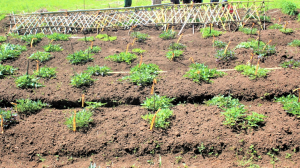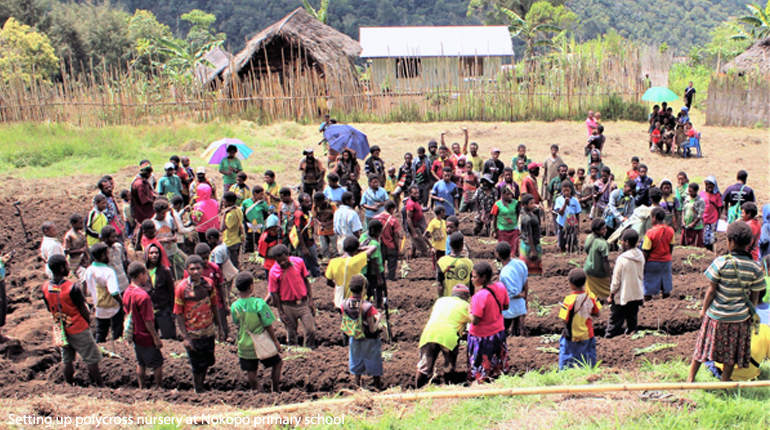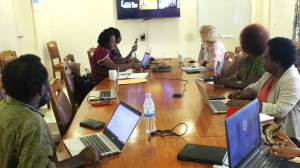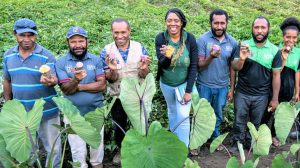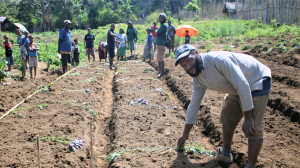National Agricultural Research Institute’s (NARI) sweetpotato conservation and utilization project is keen to inspire the interest of future farmers and agricultural scientists. This is realized through the engagement of selected schools in targeted communities, around the country. The project is funded by the Benefit Sharing fund of the International Treaty on Plant Genetic Resources for Food and Agriculture
Participating schools include Concordia Primary School in Menyamya, Morobe province; Usurufa Primary School in Kainantu, Eastern Highlands province; Bina Primary School in Rigo, Central province; and Nokopo Primary School at the border of Morobe and Madang provinces.
The involvement of schools enables teachers and students to learn how to undertake basic poly-cross nursery breeding processes in the trials.
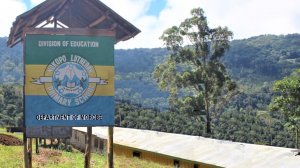
Poly-cross nurseries of selected local and introduced varieties had been set up, early this year. Specific local varieties are being used at respective schools like Bakapo (white flesh) at Concordia and Pupkok (purple flesh) at Nokopo. Introduced varieties such as Pepolita and Beauregard are trialed across all participating schools.
The schools would have completed the phases of pollination and seed collection by the end of this month. The total number of seeds collected will be propagated and evaluated during the vegetative and post-harvest phases against desired traits such as tolerance to extreme biotic and abiotic stresses, as well as high nutritional and economic values.
Those with desired traits would then be selected and released as new lines of sweetpotato varieties or hybrids.
The teachers are very keen to support this research project. The administration of the Bina Primary School has been very supportive of this participatory plant breeding trial right from the beginning. The headteacher, Mr. B. Tau, said, “This is an eye-opener for me, my teachers and students. While sweetpotato is a new crop in Rigo, we need to really understand how this breeding process works from pollination and seeds formation through to the production of new varieties at the end.”
Mr Biribiang of Nokopo Primary School also expressed similar sentiments saying, “We are very excited as this gives our school an opportunity to be a channel for new ideas to build the capacity of our students to become ‘educated farmers’. They would then help to enhance farming practices for their families and communities, in the future”.
